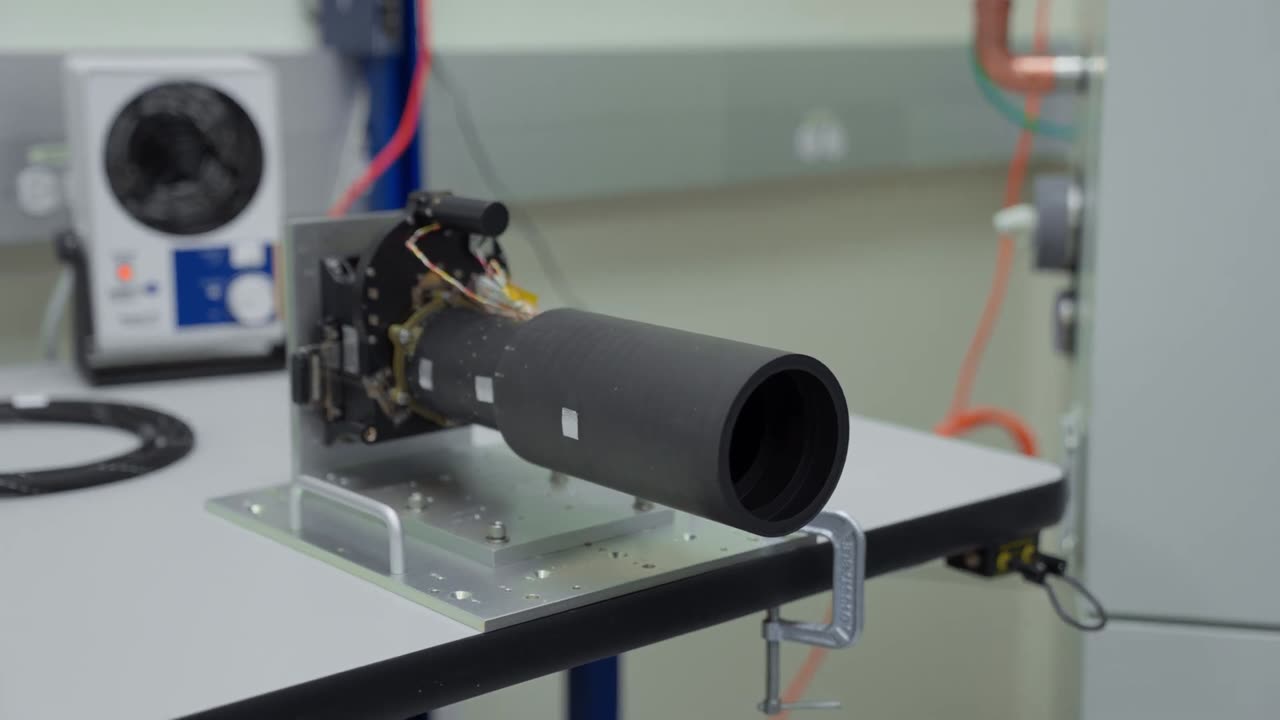Premium Only Content

How Will #MissionToPsyche See Its Target Asteroid?
#asteroid #targetasteroid #missionpsyche #psyche #mars #moon #space #rocketlaunch #spaceexploration #marsexploration# nasamission #nasaspacemission #spacemission #astrology #spaceimaging #spacetechnology #spacescience #moonexploration #jupiter #stakleytingo #wolfchamp #lunar #lunarexploration #spacecraft #spacrocket #spaceshuttel
How Will #MissionToPsyche See Its Target Asteroid?
NASA’s Psyche spacecraft will use highly sensitive cameras to allow scientists to see a metal-rich asteroid that’s never been imaged up close before.
Planetary scientist and Psyche mission co-investigator Jim Bell of Arizona State University, along with his instrument team, developed this critical technology in collaboration with Main Space Science Systems.
Psyche’s multispectral imager consists of a pair of identical cameras with filters and telescopic lenses that will photograph the surface of the asteroid in different wavelengths of light. It will provide the data needed to build a digital terrain model of the asteroid’s surface, contribute to revealing Psyche’s geochemistry and composition, and help with navigation.
Whether the asteroid Psyche is the partial core of a planetesimal (a building block of the rocky planets in our solar system) or primordial material that never melted, scientists expect the mission to help answer fundamental questions about Earth’s own metal core and the formation of our solar system.
Psyche is expected to launch in October 2023. The spacecraft will begin orbiting the asteroid Psyche in 2029.
Learn about this first-of-its-kind mission at: https://www.nasa.gov/psyche/.
Credit: NASA/JPL-Caltech/ASU
Produced by: True Story Films
Wolf Champ
How Will #MissionToPsyche See Its Target Asteroid?
NASA’s Psyche spacecraft will use highly sensitive cameras to allow scientists to see a metal-rich asteroid that’s never been imaged up close before.
Planetary scientist and Psyche mission co-investigator Jim Bell of Arizona State University, along with his instrument team, developed this critical technology in collaboration with Main Space Science Systems.
Psyche’s multispectral imager consists of a pair of identical cameras with filters and telescopic lenses that will photograph the surface of the asteroid in different wavelengths of light. It will provide the data needed to build a digital terrain model of the asteroid’s surface, contribute to revealing Psyche’s geochemistry and composition, and help with navigation.
Whether the asteroid Psyche is the partial core of a planetesimal (a building block of the rocky planets in our solar system) or primordial material that never melted, scientists expect the mission to help answer fundamental questions about Earth’s own metal core and the formation of our solar system.
Psyche is expected to launch in October 2023. The spacecraft will begin orbiting the asteroid Psyche in 2029.
Learn about this first-of-its-kind mission at: https://www.nasa.gov/psyche/.
Credit: NASA/JPL-Caltech/ASU
Produced by: True Story Films
Wolf Champ
How Will #MissionToPsyche See Its Target Asteroid?
NASA’s Psyche spacecraft will use highly sensitive cameras to allow scientists to see a metal-rich asteroid that’s never been imaged up close before.
Planetary scientist and Psyche mission co-investigator Jim Bell of Arizona State University, along with his instrument team, developed this critical technology in collaboration with Main Space Science Systems.
Psyche’s multispectral imager consists of a pair of identical cameras with filters and telescopic lenses that will photograph the surface of the asteroid in different wavelengths of light. It will provide the data needed to build a digital terrain model of the asteroid’s surface, contribute to revealing Psyche’s geochemistry and composition, and help with navigation.
Whether the asteroid Psyche is the partial core of a planetesimal (a building block of the rocky planets in our solar system) or primordial material that never melted, scientists expect the mission to help answer fundamental questions about Earth’s own metal core and the formation of our solar system.
Psyche is expected to launch in October 2023. The spacecraft will begin orbiting the asteroid Psyche in 2029.
Learn about this first-of-its-kind mission at: https://www.nasa.gov/psyche/.
Credit: NASA/JPL-Caltech/ASU
Produced by: True Story Films
Wolf Champ
How Will #MissionToPsyche See Its Target Asteroid?
NASA’s Psyche spacecraft will use highly sensitive cameras to allow scientists to see a metal-rich asteroid that’s never been imaged up close before.
Planetary scientist and Psyche mission co-investigator Jim Bell of Arizona State University, along with his instrument team, developed this critical technology in collaboration with Main Space Science Systems.
Psyche’s multispectral imager consists of a pair of identical cameras with filters and telescopic lenses that will photograph the surface of the asteroid in different wavelengths of light. It will provide the data needed to build a digital terrain model of the asteroid’s surface, contribute to revealing Psyche’s geochemistry and composition, and help with navigation.
Whether the asteroid Psyche is the partial core of a planetesimal (a building block of the rocky planets in our solar system) or primordial material that never melted, scientists expect the mission to help answer fundamental questions about Earth’s own metal core and the formation of our solar system.
Psyche is expected to launch in October 2023. The spacecraft will begin orbiting the asteroid Psyche in 2029.
Learn about this first-of-its-kind mission at: https://www.nasa.gov/psyche/.
Credit: NASA/JPL-Caltech/ASU
Produced by: True Story Films
Wolf Champ
How Will #MissionToPsyche See Its Target Asteroid?
NASA’s Psyche spacecraft will use highly sensitive cameras to allow scientists to see a metal-rich asteroid that’s never been imaged up close before.
Planetary scientist and Psyche mission co-investigator Jim Bell of Arizona State University, along with his instrument team, developed this critical technology in collaboration with Main Space Science Systems.
Psyche’s multispectral imager consists of a pair of identical cameras with filters and telescopic lenses that will photograph the surface of the asteroid in different wavelengths of light. It will provide the data needed to build a digital terrain model of the asteroid’s surface, contribute to revealing Psyche’s geochemistry and composition, and help with navigation.
Whether the asteroid Psyche is the partial core of a planetesimal (a building block of the rocky planets in our solar system) or primordial material that never melted, scientists expect the mission to help answer fundamental questions about Earth’s own metal core and the formation of our solar system.
Psyche is expected to launch in October 2023. The spacecraft will begin orbiting the asteroid Psyche in 2029.
Learn about this first-of-its-kind mission at: https://www.nasa.gov/psyche/.
Credit: NASA/JPL-Caltech/ASU
Produced by: True Story Films
Wolf Champ
-
 21:24
21:24
DeVory Darkins
1 day ago $5.07 earnedElon Musk and Tucker Carlson SHATTER Left Wing Media
20.7K30 -
 15:13
15:13
Stephen Gardner
2 hours ago🔥Breaking: Trump JUST DID the UNEXPECTED | Tucker Carlson WARNS America!
17.4K45 -
 1:18:01
1:18:01
Glenn Greenwald
7 hours agoWill Trump's Second Term Promote Economic Populism? Matt Stoller On Cabinet Picks To Fight Corporate Power; Should Liberals Cut Off Pro-Trump Friends & Family? | SYSTEM UPDATE #372
158K126 -
 2:26:30
2:26:30
WeAreChange
8 hours agoTrump To Subdue Deranged Opposition! ARRESTS Planned
126K49 -
 1:19:04
1:19:04
JustPearlyThings
8 hours agoWhy MODERN WOMEN Keep REJECTING The Redpill! | Pearl Daily
97.8K52 -
 1:15:03
1:15:03
Man in America
10 hours agoBig Pharma EXPOSED: The HIDDEN Cures They Tried to Bury
27.8K12 -
 2:18:12
2:18:12
VikingsOutlawsAndCowboys
10 hours agoVOC SHOW LIVE - #9
8.62K -
 43:22
43:22
PMG
1 day ago $3.25 earned"Sean Parnell Speaks Out for Tulsi Gabbard and Pete Hegseth; J6 Pardons Needed"
22.3K7 -
 1:14:23
1:14:23
Flyover Conservatives
1 day agoShifting Alliances: Tulsi, Musk, RFK, Rogan… CAN THEY BE TRUSTED? - Roger Stone | FOC Show
32.5K1 -
 39:01
39:01
The Why Files
8 days agoSymbols of Power: Deciphering the Language of the Secret Elite
114K64